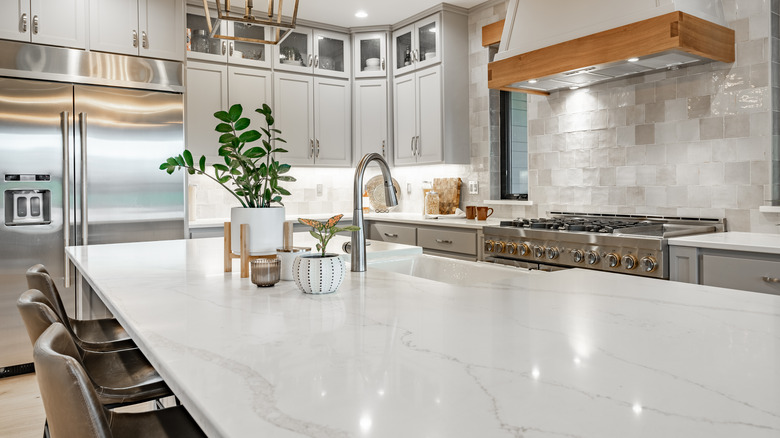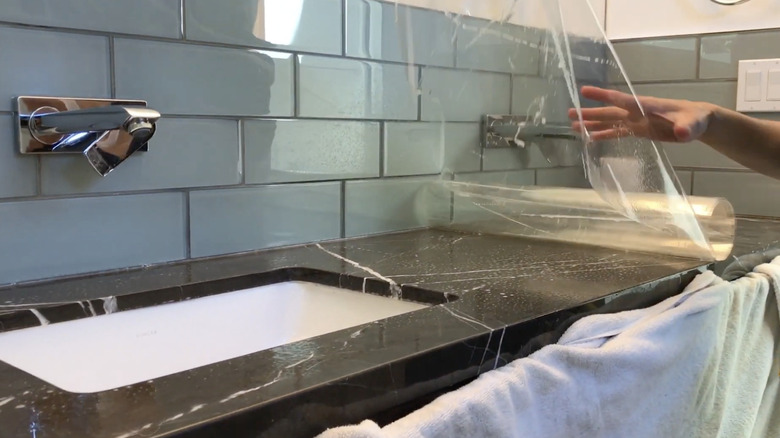Protect Countertops With This Versatile Automotive Product (But Is It Safe?)
We may receive a commission on purchases made from links.
No one wants to worry about damaging their brand-new kitchen surfaces or replace their countertop every few years, which could cost thousands. And, it can be challenging to repair scratches or chips, depending on how durable your countertop material is. Many car owners are using a clear paint protective film (PPF) to protect their new and luxury vehicles from natural elements and minor body damage. Now, home improvement enthusiasts are bringing this same chemically treated PPF into the home to protect countertops from wear and tear like stains, scratches, and damage from acidic liquids like lemon juice and vinegar.
You can purchase PPF that is meant for countertops, like the TapeManBlue Store's countertop protection film. Still, the intended purpose of this film is to protect your countertop during transportation or renovation, not everyday use. So, is it safe? Yes, it is. PPF is made of thermoplastic urethane (TPU). This chemical combination creates a flexible, strong, self-healing film that will resist abrasion, impact, and protect against harsh chemicals — all common occurrences for both cars and some kitchen countertops. TPU is a food-safe, BPA-free material. It even has antifungal and antibacterial properties and can be used in medical devices.
What to consider when installing PPF to protect countertops
If you do decide to install PPF on your countertops for everyday use, it's helpful to know there are many different types of countertops to consider when remodeling. Granite, for example, is notoriously hard to damage and is typically sealed when installed. If you maintain it, you may not need a protective covering. Marble, in contrast, can be quite delicate and might benefit from PPF.
Depending on how large of a job you have, you may want to have a professional install the PPF for you. This will help avoid any cracks, bumps, air bubbles, or improper adhesion. Particularly if you've got delicate stone like limestone or marble, you'll need precision and expertise. Plus, a professional installer may offer a warranty on their work. If you're a die-hard DIYer with confidence in your abilities, go for it!
If you take this route, choose a PPF that is self-adhering so you don't have to deal with applying it using a liquid solution. You can clean the countertop with soda water to remove any debris and dry it. Cut the PPF to size, making sure it fits properly. If you have a sink on the counter, cut out the necessary holes for that. Next, carefully peel back the backing paper, small sections at a time, and apply the PPF. Use a soft cloth or squeegee to smooth it out as you go. You can use a hairdryer or heat gun to warm the material up to wrap around the edges of the countertop and adhere completely. Finally, trim any excess film with a razor or sharp knife.

